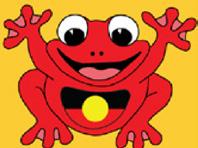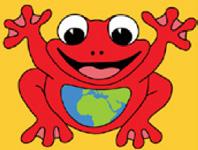of Community, Growth & Inclusion Celebrating 13 Years
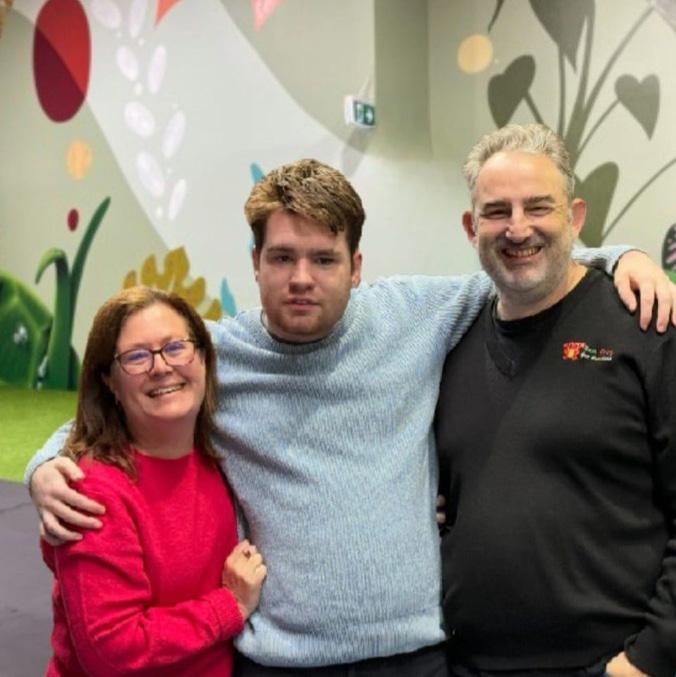




When Rochelle and David first welcomed their son Alex into the world, they imagined a childhood filled with milestones, laughter, and a future that stretched far ahead. But when his development didn’t follow the path they expected, Rochelle—drawing on her teaching background and her work with children with additional needs— began to notice the subtle signs that something was different.
The journey to an autism diagnosis was long and confronting. When it finally came, the words felt crushing. Their son was diagnosed with the most severe form of autism and, at the time, was non-verbal. “Even though I knew it in my heart, hearing it spoken aloud was devastating,” Rochelle recalls. “It was as though our world cracked open.”
But then came moments of hope. In occupational therapy sessions that were my play based in their approach, they began to see glimpses of possibility. A single whispered word— “go”—filled with meaning and joy, proved that play, movement, and connection were the real keys to unlocking his potential. “It wasn’t just a word,” David says. “It was communication. It was proof, hope, reassurance that we were on the right track and Alex was in there, ready to connect, we just need to keep going and look at communication in a whole different light.”

That moment changed everything. Rochelle immersed herself in international training in Relationship Development Intervention (RDI), determined to equip herself and other parents with tools that truly worked. And David, still working in IT at the time, realised his own path was changing too.
“The highlight of my week wasn’t the boardroom or the office,” David recalls. “It was being on the floor at OT, playing with my son, watching him light up. That’s when I knew: I didn’t just want to be a dad cheering from the sidelines—I wanted to step onto the field.”
David retrained as an Occupational Therapist, a bold step that required resilience, patience, and deep commitment. For him, it was more than a career change—it was a calling born from love. Together, he and Rochelle became both parents and professionals, combining lived experience with clinical expertise.
Their lived journey became the blueprint for Red Frog for Families. From the very beginning, their goal was clear: no parent should face the same long waitlists, lack of guidance, and isolation they had endured. Instead, families would find timely, empathetic support that was designed specifically around the individual needs of their child, and parents would be empowered with knowledge they could use at home.
What began as one small therapy space has grown into a thriving allied health practice with a dedicated team of occupational therapists, speech therapists, behaviour support practitioners, and community access workers with psychology to come on stream late 2025. Yet, despite its growth, the heart of Red Frog for Families has never changed. Every decision is still shaped by one guiding question: “Would we trust this for our own son?”

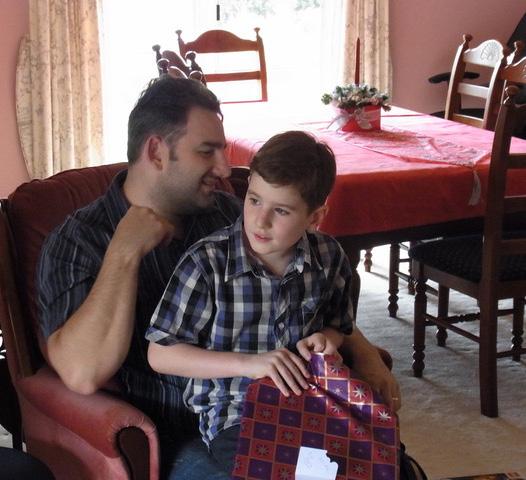

Today, Rochelle and David are not just business owners. They are parents who truly understand, therapists who bring both expertise and empathy, and leaders who have built a community around their son— and around every family who walks through their doors.
For them, success isn’t measured in checklists or milestones. It’s in the small wins—the whispered “go,” the smile of a child who orders their own lunch, the relief of a parent who feels seen and supported. Those small wins, stacked together, have created something extraordinary: a community where every family knows they are not alone.

When we began our journey as parents, we thought progress would look like the big milestones: first words, first independent steps, first “I love you.” But life had different plans for us. When our son was diagnosed with the most severe form of autism and remained non-verbal, those milestones felt impossibly far away.
What we discovered, though, is that progress doesn’t always come in leaps. Sometimes it arrives quietly, in moments so small they could easily be overlooked. For us, it was the whispered word “go.” To someone else, it might not have seemed like much. To us, it was everything. It was proof that connection was possible. It was a doorway opening, however slightly, and it gave us hope to keep going.:
We’ve learned that those small moments are not minor — they’re key milestones. Every time a child tries something new, every flicker of eye contact, every sound or gesture that shows intent… it’s all progress. And it deserves to be celebrated.
We also know how easy it is to compare. We’ve been there — watching other children move ahead while wondering why our son’s steps felt slower. But we came to understand that every child’s journey is different, and every story is unique. What takes days for one child might take years for another, and that doesn’t make the achievement any less important.
This is why we are so passionate about keeping the focus on the individual. Therapy has to be flexible, personal, and responsive — not a one-size-fits-all checklist. When care is individualised, those small wins are noticed, embraced, and celebrated for the incredible milestones they truly are.
Today, in our work with Red Frog for Families, we carry this belief into every session and every conversation with parents. We know how much it means to witness those moments because we’ve lived them ourselves.
When we see a child take a step forward — whether it’s trying a new skill, communicating in their own way, or simply showing a spark of connection — we celebrate. Because each small win is a step toward a bigger future. And we believe those steps are worth honouring.
Progress may not always look like what we once expected. But we’ve learned to embrace it, to celebrate it, and to let it fuel us with hope. And we want every family we work with to feel that same encouragement: no matter how small the step, it’s always a step forward.

When most people hear “speech therapy,” they picture a child practicing their speech sounds at a desk. But in reality, speech therapy is so much more—it’s about helping people of all ages communicate, connect, and be truly understood.
We sat down with Tanesha Makin our manager of Speech Therapy to talk about what speech therapy really is, how it changes lives, and why families are such an important part of the journey.
Q: For readers who may not know, what exactly is speech therapy?
A: At its heart, speech therapy is about supporting people to communicate and connect. That might involve language development, speech sounds, fluency (like stuttering), social communication, or even swallowing and feeding. But it’s never a one-size-fits-all approach. Every person is unique, so we individualise goals that are meaningful for them and collaborate closely with families to make therapy relevant to real life.
Q: Many people think speech therapy is just for little kids. Is that true?
A: That’s a really common misconception. While we certainly work with young children, speech therapy is for people across the lifespan. At Red Frog for Families, we see participants from birth right through to young adulthood—and in other settings, therapists may work with adults well into their 60s. Sometimes it’s developmental, like autism, and other times it’s acquired, like after a brain injury or stroke. Communication is lifelong, and so is the need for support..
Q: What does a session actually look like?
A: The wonderful thing about speech therapy is that no two sessions ever look the same. For children, therapy might involve climbing, swinging, or exploring sensory spaces while we weave in language, literacy, and communication goals. For adults, it might look like following recipes, making coffee, or practicing everyday interactions in the community. At Red Frog for Families, therapy is active, engaging, and always tailored to the individual.
Q: Some parents wonder—how does play count as therapy?
A: Play is a child’s most natural and powerful way to learn. It’s how they discover, problem-solve, and build relationships. When therapy is play-based, it feels enjoyable and motivating, which makes learning more meaningful and lasting. Play also helps us build strong connections with children, so they feel safe and supported to try things that might otherwise feel difficult. And really, why shouldn’t therapy feel like play?

Q: What makes Red Frog for Families different?
A: A few things stand out. First, no one “ages out” here—we support participants for as long as they need us. Second, our purpose-built spaces are designed with movement and sensory needs in mind, which makes therapy feel fun and accessible. And third, we have a full multidisciplinary team—speech, occupational therapy, behaviour support, and more—all under one roof. That means families don’t have to juggle services, and collaboration between professionals happens naturally.
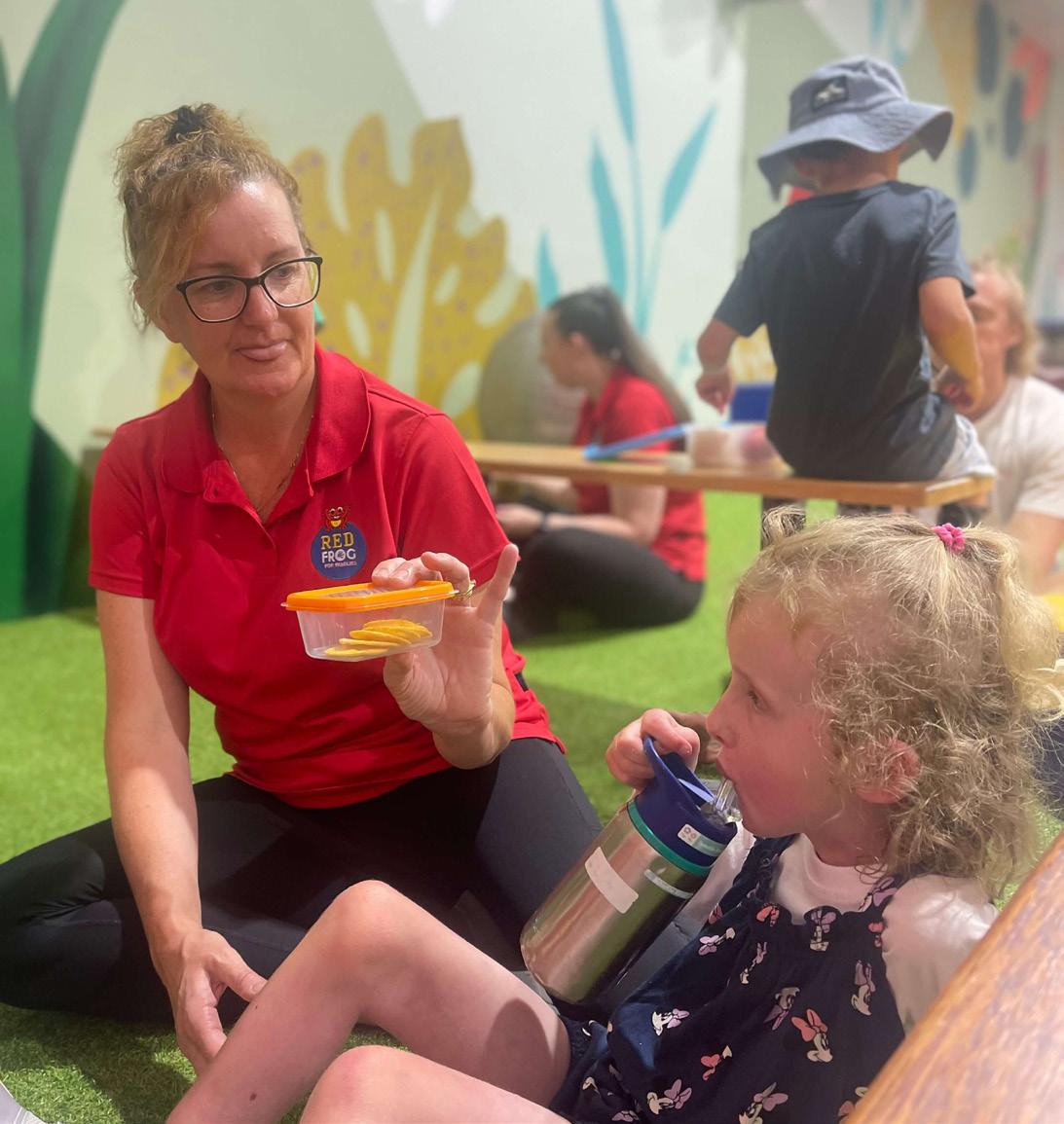
Q: How important are families in this process?
A: Families are at the centre of everything we do. Our philosophy is “Care, Connect, Empower,” and that applies to parents and carers just as much as participants. We know that one hour of carer coaching can equal 84 hours of therapy at home. That means families play a huge role in their loved one’s progress. Sometimes that looks like learning strategies, and other times it’s giving parents a chance to breathe while we take care of their child. Both are important, and both count as therapy.
Q: What advice would you give to families just starting out?
A: Reach out early if you’re concerned—your GP or a service like ours can help. The earlier support begins, the better the outcomes. Trust your therapist, even when progress feels slow, because progress isn’t always a straight line. And most importantly, be open to all forms of communication. Whether it’s a word, a gesture, a picture, or a device—it all matters.
Q: What’s a common myth you’d love to bust?
A: A funny one is that some people think we teach public speaking! But the bigger myth is that speech therapy looks the same for everyone. It doesn’t. Every session is as individual as the person we’re supporting—and that’s exactly how it should be..
Speech therapy isn’t just about speech—it’s about connection, confidence, and being heard. At Red Frog for Families, therapy is built around each person and their family, creating spaces where learning is joyful, support is empowering, and progress is always possible.
Because at the end of the day, speech therapy isn’t about ticking boxes. It’s about helping people find their voice—and making sure they know it matters.
Tanesha, Red Frog for Families

Planning a party that is fun, inclusive, and supportive of children with sensory needs can feel like a challenge, but with thoughtful adaptations, it becomes an opportunity to create a warm and joyful environment. Here are some top tips and game ideas, with options tailored to younger kids, tweens, and older children.
Each section includes sensory-friendly versions of classic games as well as creative alternatives for both outdoor fun and rainy-day celebrations.
• Keep noise and lighting levels comfortable; offer noise-reducing headphones or quiet corners.
• Use soft, tactile materials like fabric, foam, or paper instead of harsh plastics or loud items.
• Give clear visual instructions and allow children to opt in or out without pressure.
• Build in downtime between games so children don’t feel overwhelmed.
• Offer choices: let children pick roles, materials, or turns so they feel in control.
Classic Games with a Twist
Pass the Parcel: Use a soft fabric bag instead of noisy wrapping paper. Inside each layer, include a small sensory toy (squishy ball, sticker, textured fabric) so every child gets something.
Hide and Seek: Limit the playing area and use glow sticks or soft scarves as “find tokens” so seekers collect rather than searching for people directly.
Pin the Tail On: Replace blindfolds with Velcro boards where kids stick pre-cut shapes. Themes could include pinning stars on a night sky or petals on a flower.
Bubble Chase: Use a bubble machine and let children pop or catch bubbles at their own pace.
Scavenger Hunt: Give children simple picture cards (leaf, flower, feather) to collect from the yard or park.
Craft Corner: Decorating cupcakes with sprinkles or creating simple collages with soft textures.
Indoor Treasure Hunt: Hide soft toys or coloured beanbags in safe, cozy corners for children to find.
Piñata Alternative: Instead of loud, breakable piñatas, use a pull-string version where each child gently pulls a ribbon until the treats fall out.
Pass the Parcel Upgrade: Include activity cards in the layers (e.g., “do a silly dance,” “give someone a compliment”), balancing movement and calm fun.
Nature Scavenger Hunt: Expand the challenge with textures (“something smooth,” “something rough”) or colours to encourage sensory exploration.
Water Play: On warm days, use sponge toss games instead of water balloons for a softer, quieter version.
Baking Party: Make and decorate cookies together, with stations for mixing, cutting shapes, and icing.
Creative Art Game: Collaborative mural-making on large paper with crayons, chalk pastels, or finger paints.
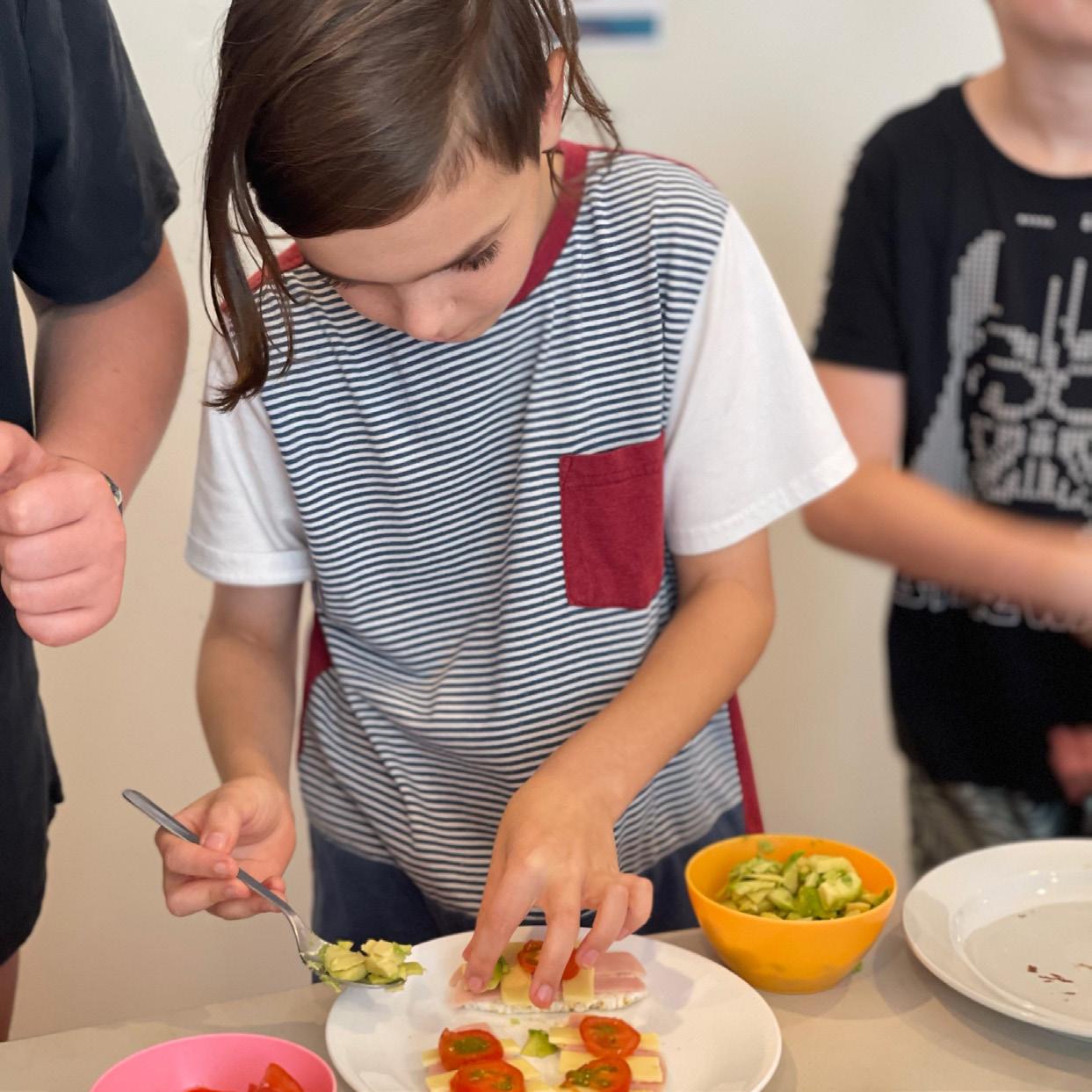
Hide and Seek Glow: Use glow-in-the-dark bracelets or UV pens for a fun twist in low light, reducing the anxiety of total darkness.
Pin the Tail Remix: Turn it into a design challenge (adding funny accessories to a character poster) instead of a blindfold game.
Team Scavenger Hunt: More complex challenges like solving clues, taking photos of items, or finding themed objects.
Calm Activity Stations: Garden games such as giant Jenga, beanbag toss, or chalk art zones give choice and autonomy.
DIY Craft Projects: Friendship bracelet making, clay modelling, or decorating tote bags.
Cook-Off Challenge: Teams prepare simple dishes (fruit skewers, sandwich art), judged on creativity rather than competition.
The key to creating sensory-friendly party games is flexibility. Allow children to participate in ways that feel comfortable, mix active and calm activities, and always keep the atmosphere light-hearted and inclusive. By adapting classics and adding creative new options, you’ll create a celebration that every child—regardless of sensory needs—can enjoy.
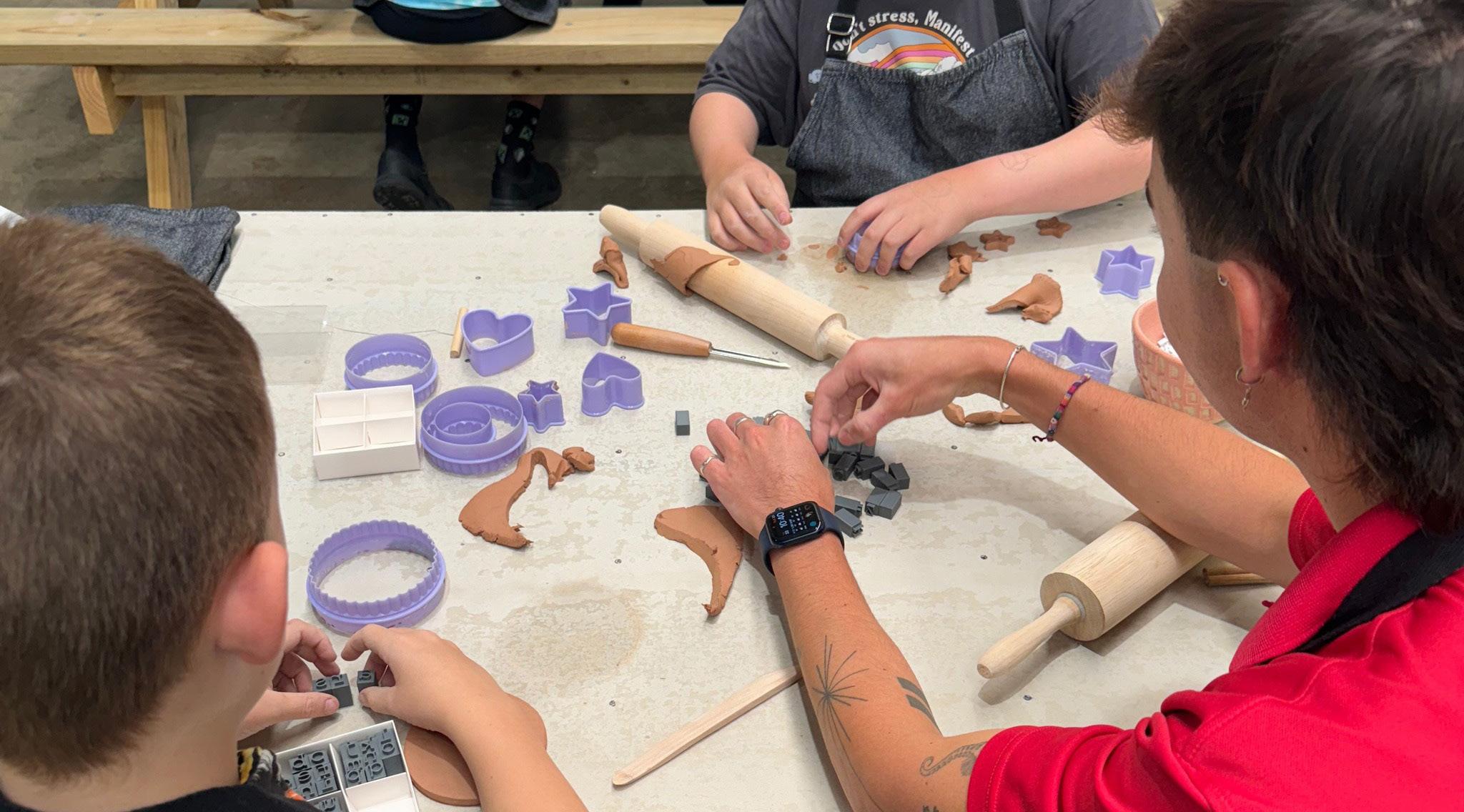
Sensory-Friendly Party Venues in Newcastle: Celebrate with Joy & Calm
If you’re planning a special celebration— especially for little ones or guests who prefer gentler surroundings—you want somewhere that’s fun and comfortable. Newcastle has some fantastic spots where you can balance excitement with calm, making sure everyone feels included, safe, and free to enjoy at their own pace. Here are our top picks, hot tips, and direct links so you can check availability or book.
These are spaces designed (or adaptable) to:
• Tame the lighting, control sound, and reduce crowding
• Provide quiet corners or breaks when things get overwhelming
• Host smaller, more intimate events
• Let you tailor the space (furniture, schedule, activities) to your group’s needs
It’s about celebrating your way, so everyone shows up, participates, and smiles.
Here are some wonderful choice venues— each with something special to offer.

• What’s special: Acacia Play host intimate gatherings (about 10 kiddos) in nature-rich settings. Think feeding animals, collecting eggs, cuddling a guinea pig, exploring food forests, whole-foods catering and cake.
• Where: They have two locations: The Paddock, Belmont NSW, and The Farm in the Hunter Valley.
• Link to Book / More Info: Acacia Play – Experiences & Gatherings
• Hot Tip: Because the group size is small, bookings fill up—reserve early and let them know any sensory-considerations in advance so they can help set up accordingly.
• What’s special: Beautiful outdoor setting with lots of space, nature walks, picnic / BBQ areas, a children’s discovery playground, calming views, and wildlife to observe.
• Facilities / Hire Info: BBQ shelters and picnic facilities can be hired for gatherings.
• Link to Book / More Info: Hunter Wetlands Centre
• Hot Tip: Aim for early morning or weekdays when fewer people are around; mix structured nature-time with free play so guests can choose what they’re comfortable with.

• What’s special: Quiet weekday slots, enclosed play areas, private bookings to reduce noise and overstimulation.
• Link to Book / More Info: Search “TreeTops Play Centre Charlestown party bookings” or call them directly.
• Hot Tip: Go for off-peak times (weekday mornings) if possible.

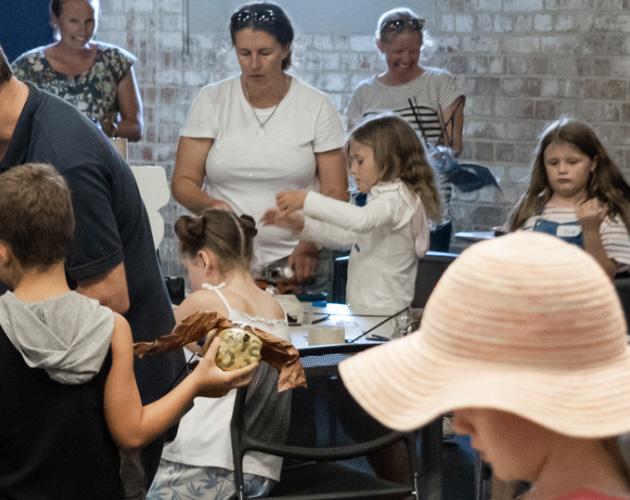
• What’s special: Educational, hands-on, gentle lighting, staff who are open to adaptations.
• Link to Book / More Info: Check the Newcastle Museum website under hire or events; contact the Museum directly for special party requests.
• What’s special: Wildlife, walking trails, picnic spots, plenty of natural sensory experiences in a calm environment..
• Link to Book / More Info: You can use picnic shelters and open areas; likely through the City Council or Newcastle local government. Check Blackbutt Reserve pages on council websites for bookings and guidelines.
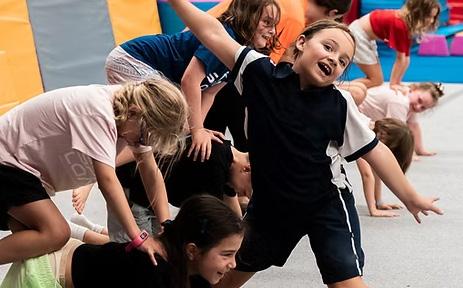
• What’s special: Trampolines, structured movement play; good potential for wellnessor calm-focused party formats.
• Link to Book / More Info: Use the Springloaded website to see party/booking options and enquire about quieter group sessions.
• What’s special: Full control—furniture, lighting, sound, layout. You can make it exactly how you need.
• Link to Book / More Info: Contact your local council or community centre; many have hire-forms online.sessions.

1. Visit ahead of time if you can, to see how it feels—noise levels, lighting, sensory triggers.
2. Create a “quiet corner” or a sensory space where guests can retreat if needed. Soothing items, soft seating, dim light help a lot.
3. Limit the guest list so things stay manageable and calm—smaller crowds = fewer overstimulation risks.
4. Plan a mix of structured activities and free time. Let children choose what feels good at any stage.
5. Communicate with the venue ahead of time about sensory needs—many places will accommodate if they know in advance.
Celebrations should be joyful, not stressful. The best way to make life easier is to start simple. Buy or bake plain cakes or cupcakes ahead of time. They can even be pre-iced with a smooth base layer, so the children only need to decorate. This takes away the pressure of baking on the day and keeps the focus on fun, creativity, and connection.
Remember, it’s not about a “perfect” cake—it’s about making memories together. Decorations can be as neat or messy as you like. In fact, the messier the better! Lay down a drop sheet or tablecloth for easy clean-up. That way, kids can explore textures, colours, and toppings without worry, and you can just gather everything up afterwards.
Most importantly, get involved yourself. This isn’t an activity to supervise—it’s something to enjoy alongside your child. Laugh together, decorate your own cupcake, and show them that play, creativity, and a bit of mess are part of the celebration.

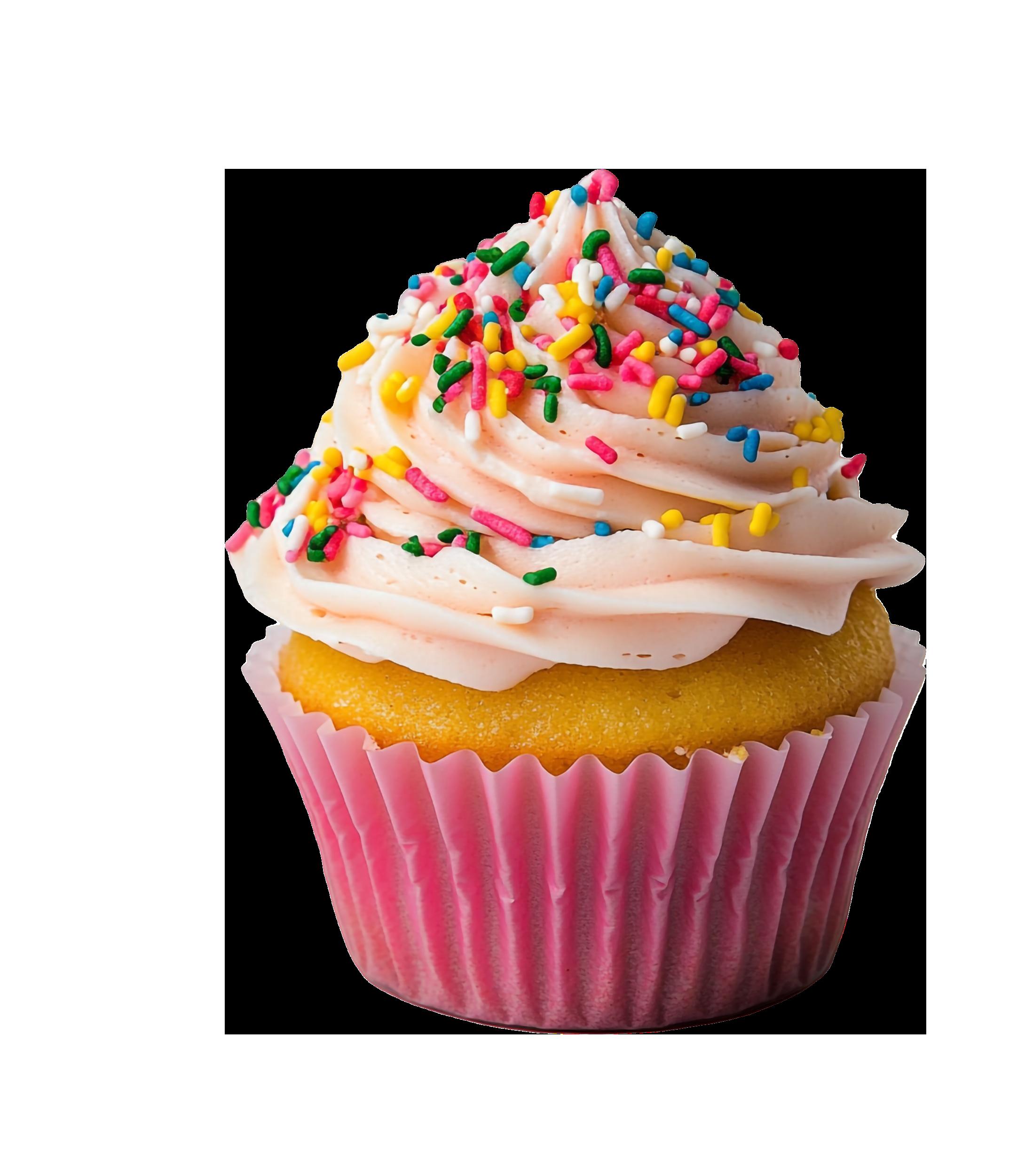


• Use a wipe-clean table or cover surfaces with a drop sheet, oilcloth, or disposable tablecloth.
• Have bowls of decorations at child-friendly height for easy access.
• Offer a mix of spooning, sprinkling, and sticking decorations so kids can choose what feels fun.
• Keep a damp cloth and a bowl of warm water nearby for quick hand-cleaning if sticky textures become overwhelming.
• Vanilla sponge cupcakes (soft and light).
• Chocolate cupcakes (mild cocoa, not too rich).
• Rice Krispie cakes (no-bake, easy to shape).
• Plain sheet cake (rectangle or square, already iced for group decorating).
• Squeeze and swirl: Use piping bags (or Ziplock bags) filled with coloured icing. Big nozzles make it easy and fun.
• Dip and press: Ice a cupcake, then dip it into bowls of sprinkles, rice puffs, or coconut.
• Sticker-style decorating: Use edible rice paper shapes (stars, flowers, animals) to press on.
• Fruit fun: Let kids place slices of strawberries, banana coins, or blueberries into patterns or faces.
• Messy play: Finger painting with icing on top of cupcakes—encouraged!
• Decoration Stations: Set up small “stations” for icing, sprinkling, or topping. Kids can move through at their own pace.
• Quiet Decorating Zone: A calmer spot for kids who prefer decorating without the group buzz.
• Choice Boards: Use simple picture cards showing the available toppings so kids can choose visually.
• Join in Together: Parents and carers decorate alongside the children, making it a shared and relaxed experience.
Light projectors and starry night lamps: Turn their room into a magical galaxy.
Textured play mats: Foam, faux grass, and soft rugs for barefoot exploring.
Play silks and fabric bins: Encourage imagination through touch and pretend play.
Cubby houses or indoor tents: Add fairy lights or a small lamp inside to make it cozy.
Cozy sensory corners: A beanbag, soft blanket, and tactile pillows create a calming retreat.
Simple sound machines: Ocean waves, birdsong, or heartbeat rhythms for bedtime calm.
Personalized storybooks: Insert their name and friends into the story.
Memory scrapbooks: Help them paste in drawings, photos, and small objects from outings.
Family music playlists: Simple, fun, and upbeat tunes they can dance to together.
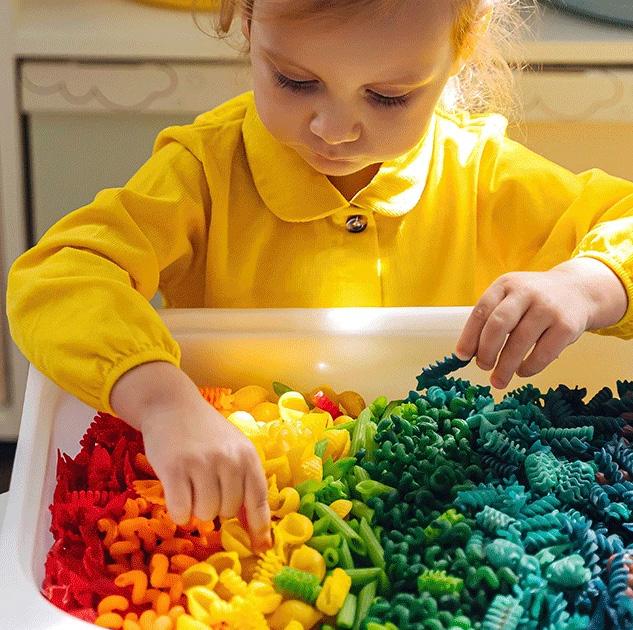
Interactive
DIY recording kit: A basic microphone and software to create their own podcasts or songs.
Light-up gaming accessories: Colour-changing headphones, keyboard, or controller.
Advanced sound machines: Add custom soundscapes (rainforest, space sounds, or fantasy worlds).
Mood lighting: Smart bulbs or LED strips they can control with their phone or remote.
Hammock chair or swing pod: A calming space for reading or relaxing.
Wall decals or removable murals: Let them redesign their room whenever inspiration hits.
Adventure day: A sensory outing like trampoline parks, VR arcades, or escape rooms.
DIY photo albums: Disposable or instant cameras they can fill with memories.
Family playlist building: Everyone contributes songs for car trips and bedroom concerts.

High-quality sound station: Bluetooth speaker or mini home system for playlists, audiobooks, and guided meditations.
Gaming station setup: A well-organised desk, comfy chair, and ambient lighting for focus and fun.
VR headset experiences: Transport them into new worlds for games, meditation, or creativity.
Weighted blankets or sensory comforters: Perfect for relaxation and focus.
Decor with personality: Cork boards, string lights with clips for photos, and framed favourite posters.
DIY art or craft corner: Space stocked with supplies for journaling, sketching, or music creation.
Personal playlist exchange: Create meaningful music libraries for each other.
Scrapbooking with a twist: Include ticket stubs, polaroids, handwritten notes, and dried flowers.
Shared family rituals: Weekly movie nights, book clubs, or cooking challenges together.
This guide is about more than gifts. It’s about creating environments where children can explore their senses, express themselves, and build lasting memories. The best sensory gifts balance comfort, creativity, and meaningful experiences that grow with them.
Red Frog for Families is turning 13, and we’re celebrating in style with our very first Froggies Festival – a free, family-friendly afternoon of fun, connection, and community spirit.
Expect a jam-packed line-up of activities and entertainment, including:
• A red-carpet mini movie premiere
• Live music to keep the vibes high
• Delicious food trucks
• A hands-on mini care farm
• Games, therapy demos & kids’ activities
• Surprises around every corner
Plus, take a behind-the-scenes tour of our play-based therapy clinic and see how therapy and play come together to support children, teens, and families.
With free entry for all, the Froggies Festival is the perfect way to connect, play, and celebrate together. Whether you’re already part of the Red Frog family, new to our services, or just curious – we’d love to welcome you.
Follow us on Facebook and Instagram for the latest festival updates and line-up reveals!
“We’re beyond excited to celebrate this milestone with the families and communities who’ve been part of our journey,” said Rochelle Appleby, Co-Founder of Red Frog for Families.
“This festival is our way of saying thank you –while inviting everyone to experience the joy and warmth of our clinic.”
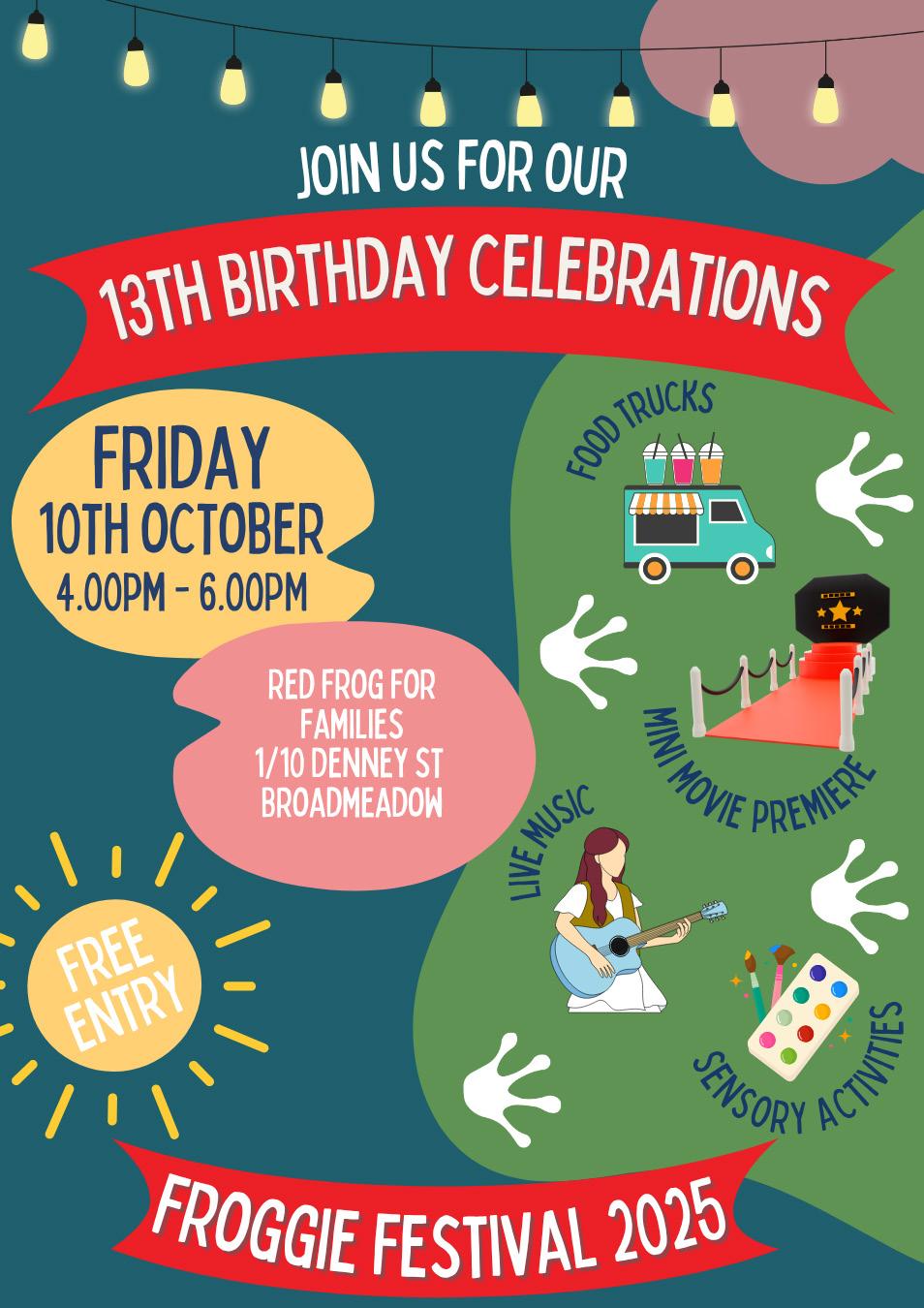
The school holidays are the perfect time for children to learn new skills, build confidence, and have fun in a supportive environment. That’s why our therapist-led holiday programs are designed to blend play, growth, and therapy into engaging experiences. Each session is created and run by our fabulous, qualified therapists, so you know your child is in safe hands while gaining valuable skills.
Prepare your tadpole for their big leap into school. We’ll build confidence in routines, transitions, and playground expectations, while focusing on social skills and problem-solving for a smooth start to kindergarten.
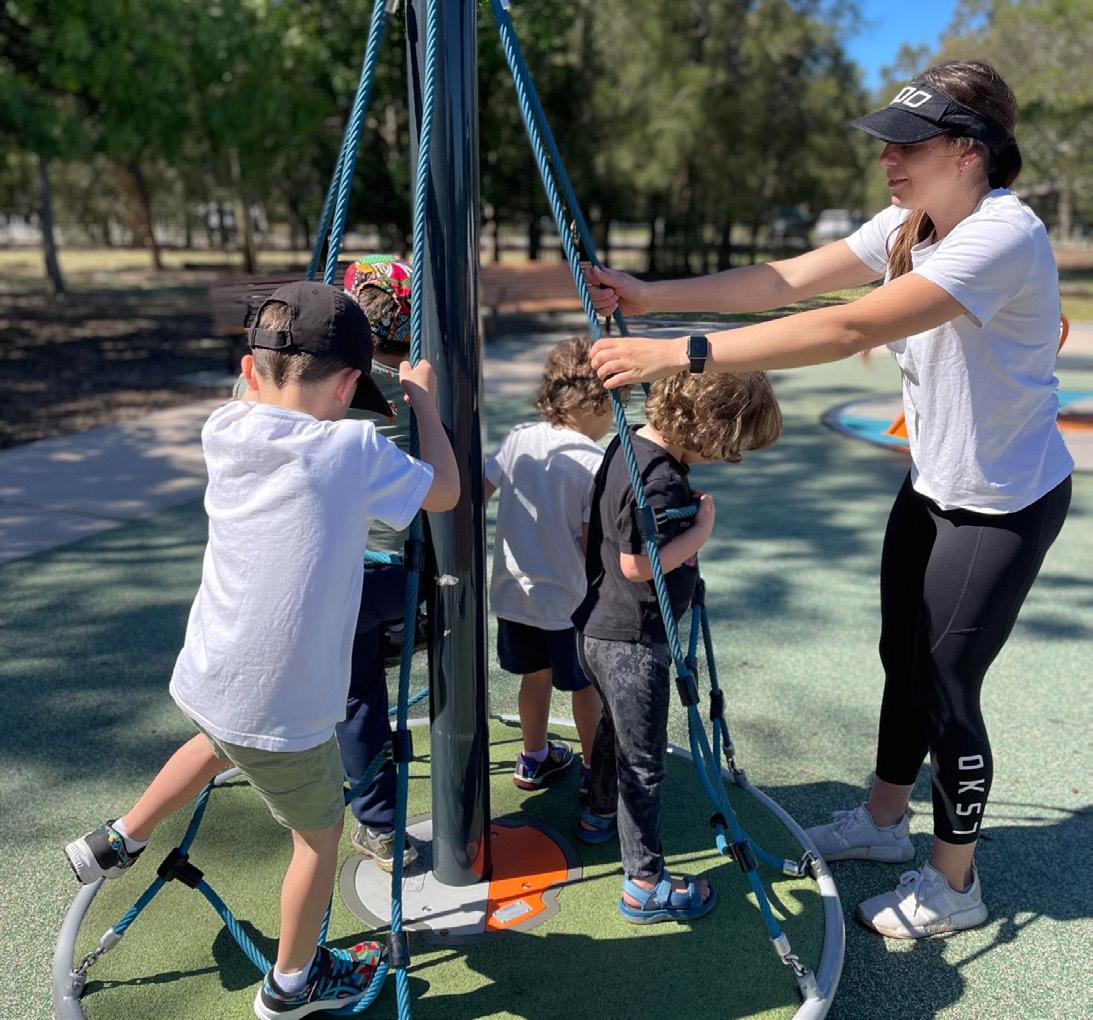
A nature-based day that fosters resilience, endurance, and teamwork. Surrounded by the outdoors, participants problem-solve, strengthen executive functioning skills, and connect socially in a new environment.
And here’s the best part: you don’t have to be a current
Red Frog participant to join our programs everyone is welcome!
Our full 2026 holiday program is now available to book.
Here are a few things you can expect:
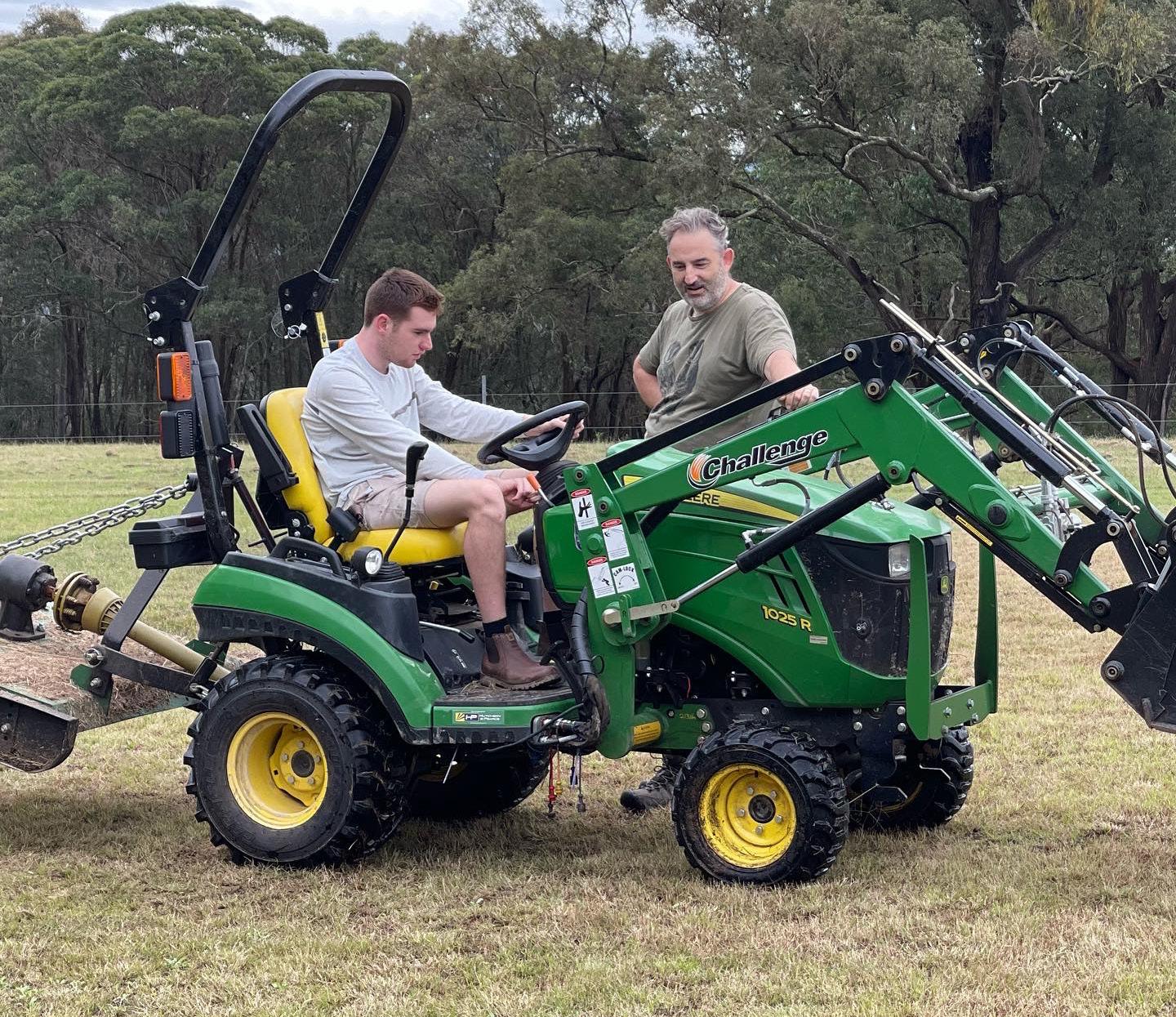

Join us while we explore our different senses through sensory play experiences. This group encourages playful learning, discovering new sensory experiences and social connections in a fun, sensory-rich and relaxed environment.
Dungeons and Dragons at Red Frog for Families a gaming and team-based therapy program. Come and play the world’s most popular role play game! In this program we will work on building skills and developing therapeutic goals such as communication, emotional resilience and collaboration, while rolling the dice and having fun!
Goal-focused therapy delivered over five days. Intensives provide a boost in development, fast-track progress, and are a fantastic option if you’re currently on a waitlist.
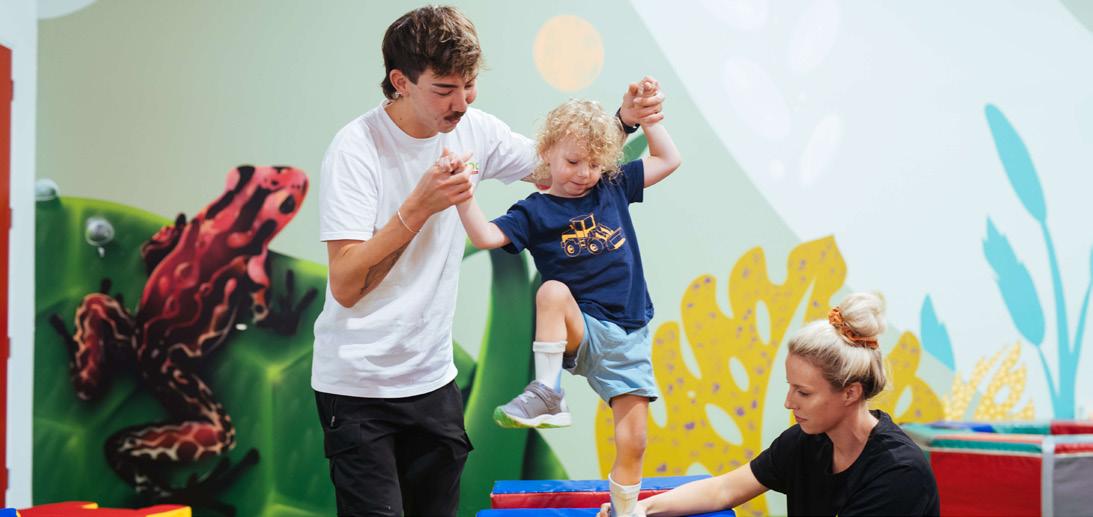
Scan the QR code for full 2026 program:
Our programs give children the chance to:
• Build life skills in fun and creative ways.
• Develop resilience, confidence, and social connections.
• Explore therapy beyond the clinic setting. Our programs are specifically designed for various age groups.
Not sure how these fits with your NDIS funding? Have a chat with your therapist, who can guide you through the options and recommend the best program for your child.
Your usual therapy sessions continue over the holidays, and our team can help you decide whether to maintain your routine, add a holiday boost, or try something new.
Alex’s Sweet Treat Safari in Newcastle
Alex took one for the team (you’re welcome) and set off to munch his way around Newcastle in search of the city’s best sweet treats. For him, baking is all about joy — licking the icing spoon, pulling gooey brownies out of the oven, and what is a birthday without an amazing chocolate mud cake! But this time, it wasn’t about what he could bake at home. It was about finding the local gems that make everyone feel welcome and leave you smiling with a sugar-dusted grin.
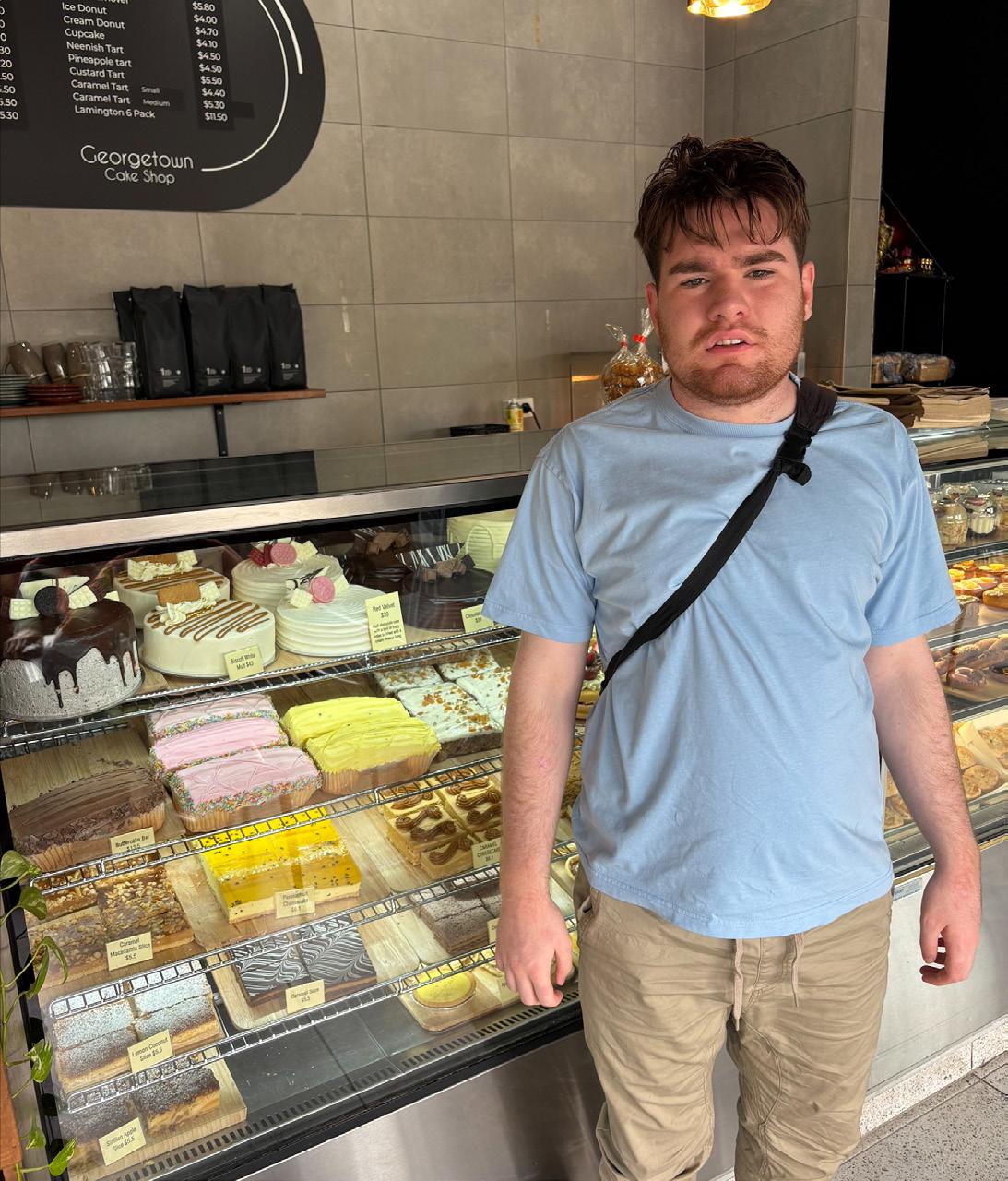


Why Alex loves it: Euro Patisserie has that touch of European sparkle without ever feeling too fancy. Whether you’re in for a quick pick-me-up or celebrating something special, everyone feels comfortable here. Families, friends, and solo cakelovers all fit right in.
Alex’s top pick: The custard tart. Smooth, velvety, and just sweet enough — it’s the kind of treat that makes you close your eyes for a moment and go, “Mmm, yep, this is the one.”
Why Alex loves it: Jordan’s is pure comfort. It’s cosy, unpretentious, and full of that “local favourite” energy. You don’t need to dress up or know the menu by heart — just wander in, and you’ll feel like you belong.
Alex’s top pick: The apple slice. A big, generous square of nostalgia. Warm, cinnamony, and the perfect balance of sweet and tart — it’s basically happiness in pastry form.
Why Alex loves it: Community is baked into this place. People pop in for their favourites and stop for a chat, and newcomers get the same warm welcome as regulars. It’s the kind of bakery where you feel part of something bigger, even if you just came for cake.
Alex’s top pick: The jam and cream sponge. Light, fluffy, and timeless. It’s proof that simple classics bring joy to absolutely everyone.
After eating his way through Newcastle’s finest sweet spots, Alex wanted to share one of his own kitchen staples — his fudgy, chocolatey brownies. They’re simple, shareable, and, most importantly, they bring people together.
Ingredients:
• 200g dark chocolate, chopped.
• 150g butter
• 250g caster sugar
• 3 large eggs
• 100g plain flour
• 30g cocoa powder
• A pinch of salt
Why Alex loves it: Designer Delights is cake turned into art — but without losing the fun. It’s bright, bold, and a little bit cheeky, making it the perfect spot for anyone who believes treats should spark joy. Kids are dazzled, grown-ups can’t resist, and everyone leaves with a smile.
Alex’s top pick: The rainbow cupcakes. Colourful, sweet, and topped with a swirl of happiness. For icing-lover Alex, this was a no-brainer.
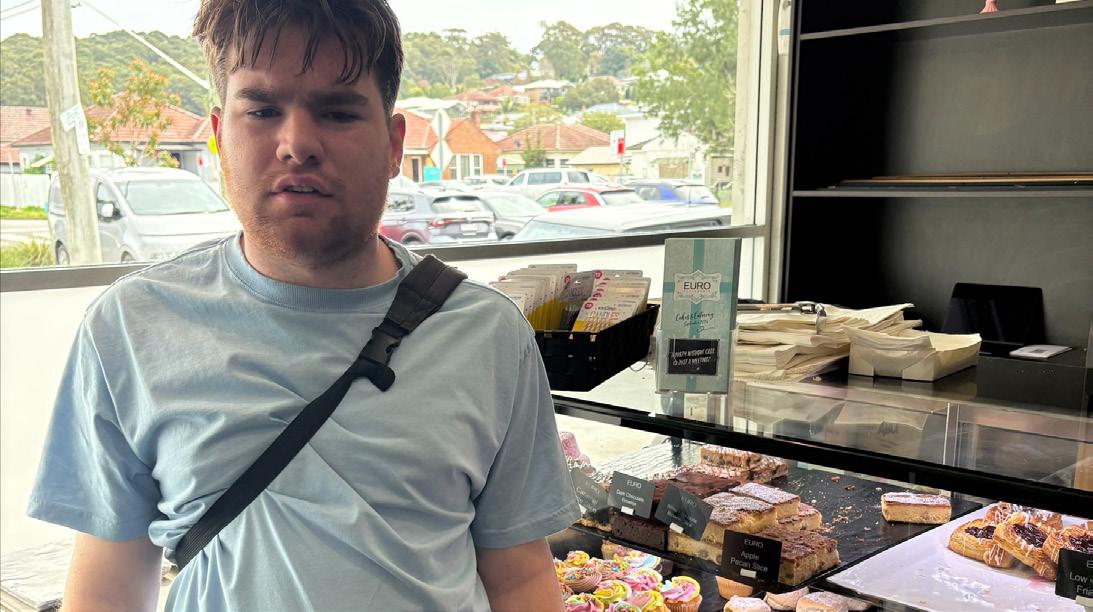
Ingredients:
1. Preheat oven to 180°C (160°C fan) and line a tin.
2. Melt chocolate and butter together.
3. tir in the sugar, then whisk in eggs one at a time.
4. Fold in flour, cocoa, and salt.
5. Bake for 25–30 minutes until shiny on top but still gooey inside.
6. Let them cool (if you can wait), then cut into squares and share… or not.
From elegant patisserie slices to nostalgic bakery favourites and colourful cupcake creations, Newcastle’s sweet treat scene has something for everyone. Alex’s adventure wasn’t about ranking or competing — it was about celebrating the inclusive, welcoming spaces that make a simple slice of cake feel like so much more.
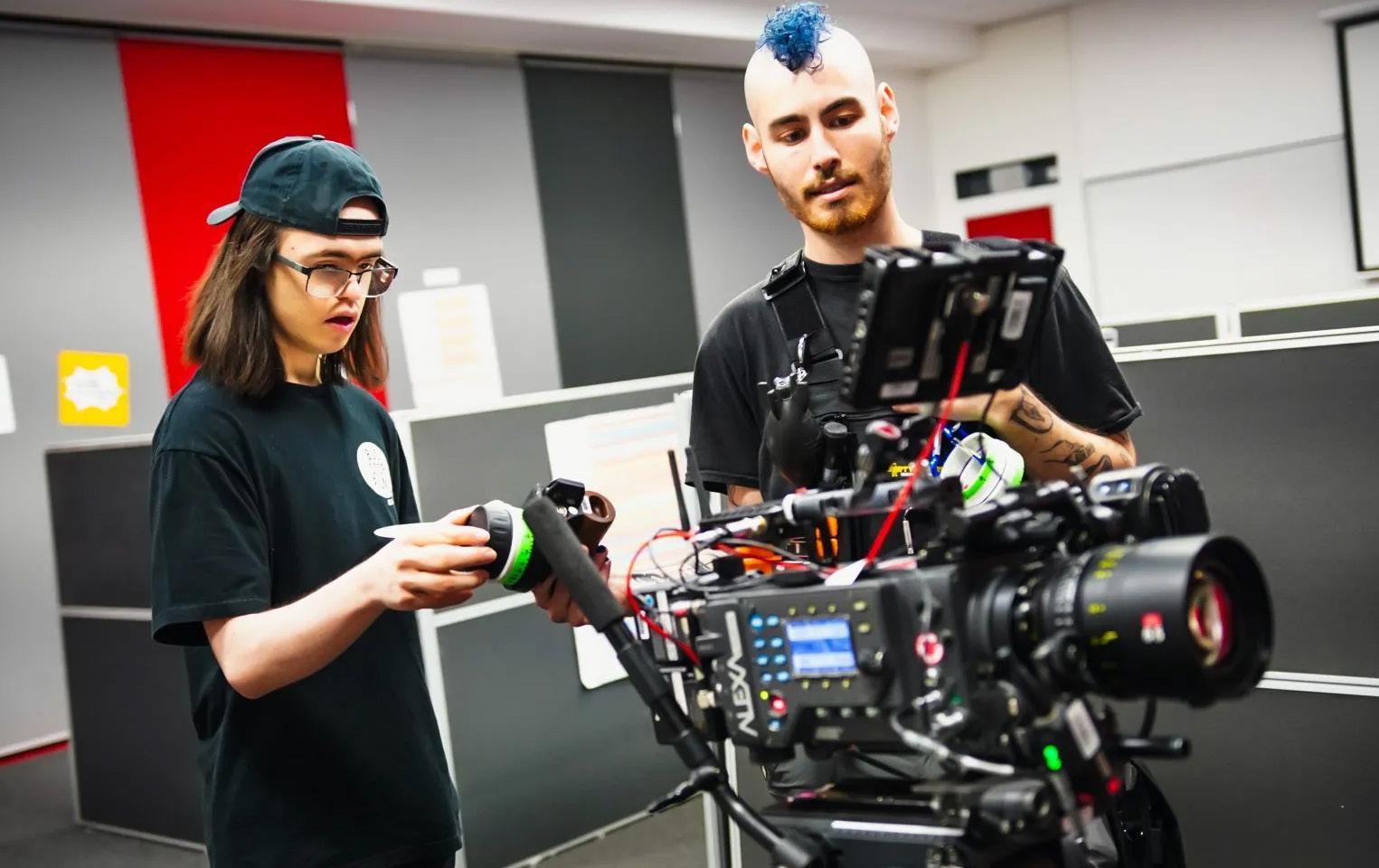
At Red Frog for Families, we absolutely love what Bus Stop Films stands for. Their passion for storytelling, inclusion, and opportunity shines so brightly, and it’s been such a pleasure to have them as part of our community. Working with them on our collaborative film has been nothing short of inspiring, and we can’t wait to share it with you all at Froggies Festival on 10th October.
We caught up with Dianna, Head of Screen at Bus Stop Films, to learn more about how it all began, what drives their work, and why their collaboration with Red Frog for Families is such a powerful example of storytelling with heart.

Bus Stop Films started in 2009 with co-founders Eleanor Winkler and Genevieve Clay-Smith, who created the Tropfest-winning short Be My Brother— filmed, fittingly, at a bus stop. From that moment, the idea was clear: more diverse people behind the camera leads to richer, more authentic stories on screen.
The vision has always been to use storytelling to open up the film and television industry to people with disability—ensuring representation both in front of and behind the camera. Over the years, Bus Stop has become not just a filmmaking hub but also a leader in inclusive employment and advocacy.
The heart of their work is the Accessible Filmmaking Program—a 40-week course where people with mild to moderate disability or Autism, particularly those with intellectual disability, can learn directly from industry professionals.
Fifteen participants each year develop a film from script to post-production, culminating in a big-screen premiere at the end-of-year Showcase. “Our film sets look like any other film set—with the same snacks and waiting around—but with an extra layer of kindness,” Dianna says.
The program builds technical skills, friendships, and confidence, and creates genuine pathways into industry jobs, supported further by Bus Stop’s dedicated Employment Services.
Through its employment arm, Bus Stop has created over 190 placements and generated more than $200,000 in income for participants in just two years. By working with studios, production companies, and ad agencies, they ensure inclusive hiring becomes both possible and practical. Employers often want to be inclusive—they just need guidance and confidence. Bus Stop provides exactly that.
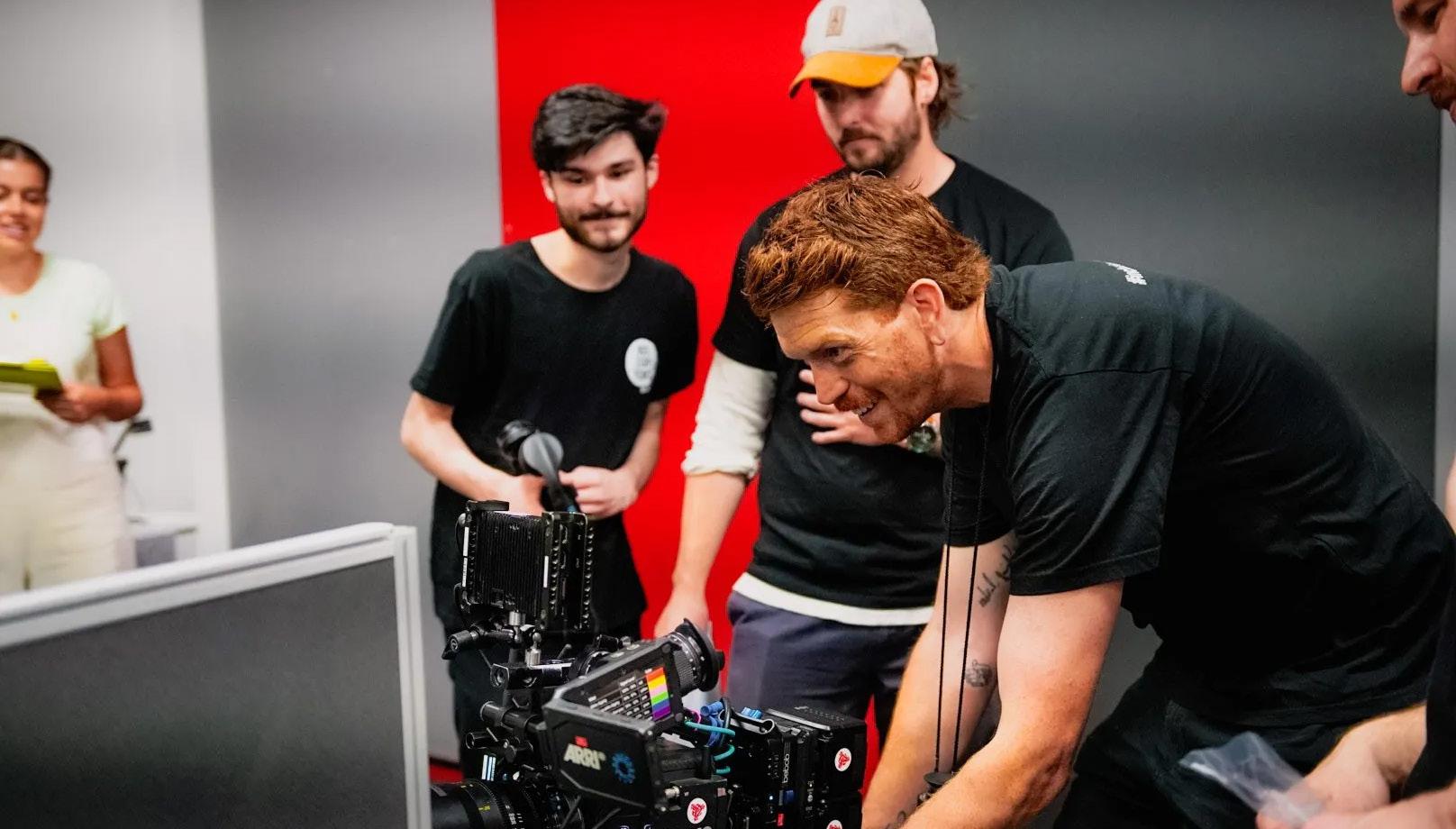
One of the most moving projects Bus Stop has recently worked on is their collaboration with Red Frog for Families. For Dianna and the team, the day of filming was unforgettable:
“The day of filming moved me immensely—hearing and seeing the power of the place and what it offers. Red Frog for Families has such a beautiful story and so much community support.”
The project shines a light on what happens when people are given the space to be their authentic selves.

“Our goal is to showcase what is possible with the right support. People from the Deaf/ Disabled/Neurodivergent community can and do incredible things, sometimes they just need a safe place where they can be their authentic selves to build the confidence and capacity to do them.”
This partnership has been about more than filmmaking—it’s about celebrating families, creating visibility, and showing the strength of a community that thrives when inclusion is at its heart.
Bus Stop’s future is ambitious: expanding to Newcastle by 2027, pursuing international collaborations in Japan and New Zealand, and celebrating the upcoming release of Boss Cat, their first fully inclusive feature film. Alongside this, they are hosting the Driving Change Disability Employment Summit, Australia’s largest employment summit for the screen industry, and rolling out the Lumina VFX Program with Netflix and Spectrum Films.
But at its heart, Bus Stop’s mission remains unchanged: to use storytelling to change hearts and minds, and to create real opportunities for people with disability in film, television, and media.
At Red Frog for Families, it has been an absolute joy to work with Bus Stop Films. Their warmth, creativity, and deep commitment to inclusion have enriched our community and inspired us all. Working with Dianna and the team on this project has been a true highlight, showing the power of collaboration and the beauty of community in action.
Watch the full film by scanning the QR code below or by visiting our website: rf4f.com.au
We are beyond excited to launch our collaborative film together at our first ever Froggies Festival at Broadmeadow HQ on 10th October. We will be celebrating Red Frog For Families 13th Birthday and it seems fitting to launch or first ever film which is celebration of stories, belonging, and the incredible things that happen when creativity and inclusion walk hand in hand.
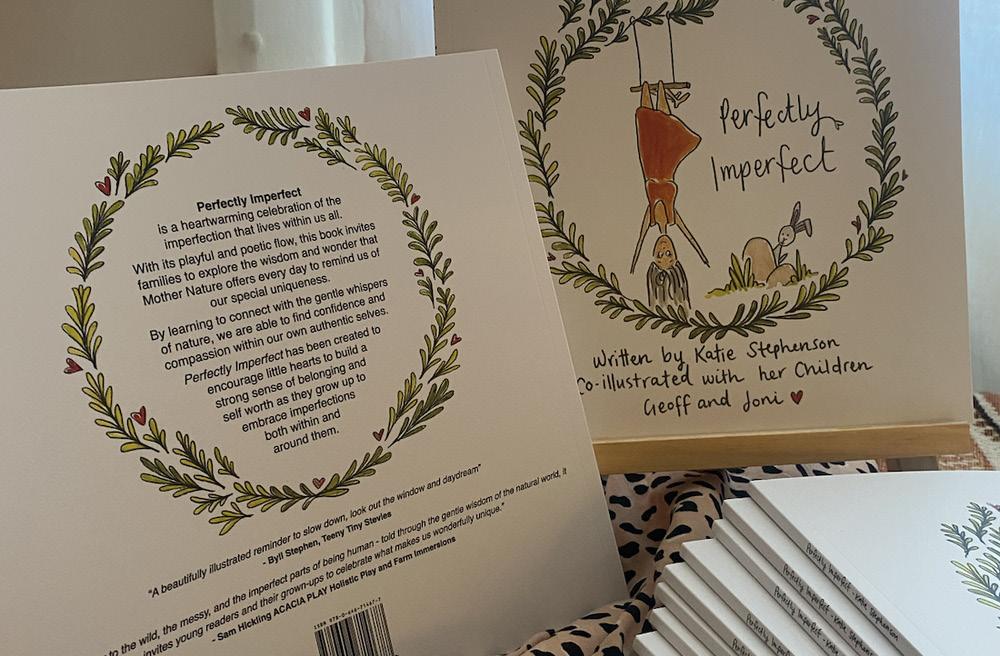
Perfectly Imperfect – The Picture Book
by Katie Stephenson
Perfectly Imperfect is a gorgeous picture book that celebrates differences and reminds us to embrace who we truly are. Written with warmth and poetic rhythm, it encourages self-compassion and belonging while showing that our so-called imperfections are really signs of resilience and uniqueness.
What makes this book extra special is that it includes drawings not only from the author, Katie Stephenson, but also from her children, adding a layer of authenticity and family love to every page. With its thoughtful design and heartfelt message, it makes a brilliant gift for children and adults alike.
“A tender celebration that our cracks, quirks, and differences are not flaws—but the stitches that bind us to our own story.”
A Colour Your Own edition is coming soon! For a sneak peek, check out Costa’s Corner— and don’t forget to colour in a page and drop it back to our reception for your chance to win 1 of 5 copies.

Why are trees so excited in spring?
They finally get to turn over a new leaf!
What do you call a grumpy flower in spring? A bud mood.
Why do birds fly north in spring?
Because it’s faster than walking!
Why do we never tell secrets in the garden in spring? Because the potatoes have eyes and the corn has ears!
Why can’t your nose be 12 inches long? Because then it would be a foot!
Why can’t you give Elsa a balloon?
Because she’ll let it go!

Based in Broadmeadow, NSW, we are a team of allied health professionals, aiming to empower people with disabilities to gain independence in every day living.
Our multidisciplinary team of therapists work with people of all ages and disabilities, from paediatrics to adolescents and young adults with developmental, behavioural, and learning disabilities.
Our occupational therapists engage participants in activities to develop essential skills for everyday function in a fun and motivating way. For children, we primarily engage in the occupation of play.
Our teens and adults engage in personally meaningful occupations including functional activities and leisure.
Disability support workers provide the link between high intensity therapeutic interventions and relaxed, real-world practice. Disability support workers facilitate participant access to their community and activities of choice.
Supports also include transport assistance and in-home support.
We are delighted to announce that psychology has joined the Red Frog for Families clinic! This new service will help us provide even more holistic support for families in Newcastle.
Advanced bookings are now open, and we’re so excited to begin this next chapter together with you.
Our speech therapists work on more than just speech. We also work on language, augmentative alternative communication, social communication and literacy skills..
Our clinic spaces support therapy focusing on relationships and developmental frameworks in a playful manner.
Behaviour support at Red Frog for Families focuses on understanding that behaviour is a form of communication. Together with the participant’s support team we identify common triggers and focus on strategies to implement consistently across settings and support people. Behaviour support includes implementation of strategies and training for carers and the individual’s support team.

